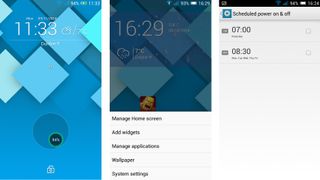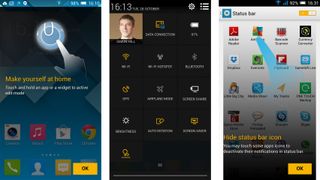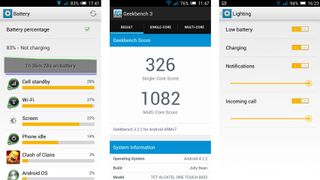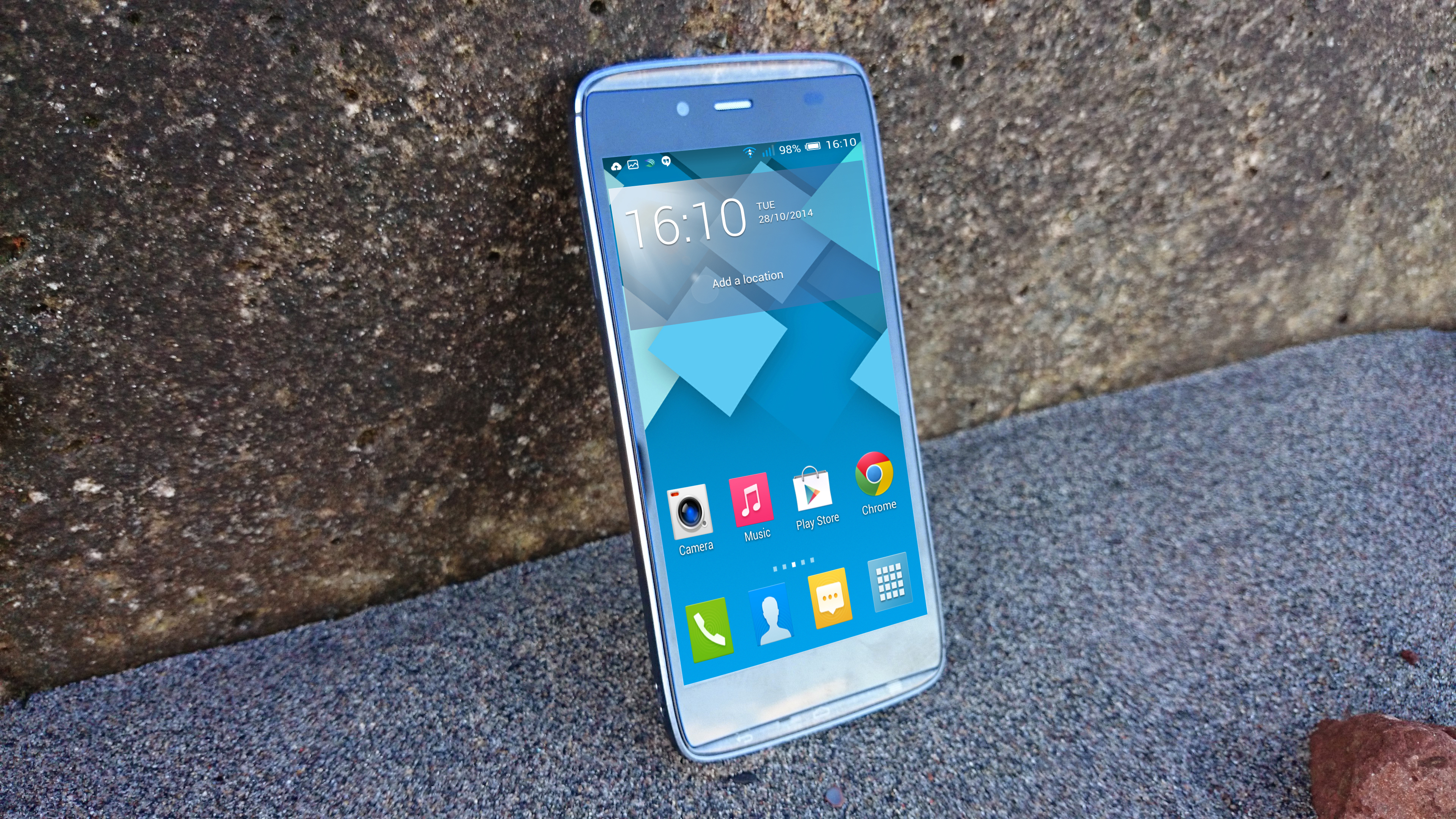Why you can trust TechRadar
You'll find that the Alcatel OneTouch Idol Alpha is running Android 4.2 Jelly Bean. With Android 4.4.4 KitKat out and about, and Android 5.0 Lollipop making its way onto most phones, that's not a good thing. There's no telling when, or even if, it will get an update.
Alcatel's skin over the top is another mixed bag. The lock screen features a bouncing ball in a circle and you drag it down to the lock icon to unlock the phone, or you can shortcut to phone, messaging or camera by dragging left, up or right respectively.
The animation sometimes sticks and you have to try again, which doesn't create a great impression.
Once you're in you'll find a fairly light touch. The notification shade is stock, but the capacitive touch button at the bottom right is still menu rather than multitasking.
Press it once and you get an ugly pop up menu in white. Long press it and you get the line-up of your open apps, but it's weirdly confined to the bottom of your screen.

I don't really understand why Alcatel has done this and found it very annoying. I'm used to that being multitasking so it tripped me up repeatedly. Even Samsung has done away with the menu button as a default now.
It's mostly familiar Android territory, but there are a few different options in the menu. For example, the status bar entry allows you to decide which app's notifications should and shouldn't appear in the status bar.
They'll still appear in the notification shade when you pull it down, you just won't get the little icons at the top.

There are also a couple of optional gestures that allow you to flip over the phone to mute or shake to switch music.
It's quite common to find an app on your Android phone that allows you to schedule quiet time and set your phone to turn off connections or stay silent during certain hours, such as while you sleep.
Sony offers Smart Connect, there's Motorola Assist, Samsung has Blocking Mode. Alcatel's option to schedule times of day for your phone to turn off or on has to be the most basic version of this I've ever seen and it's buried in the settings menu, but at least it's there.
Basic setup is a breeze and the guide that prompts you about how to edit your home screen and things like that will definitely be handy for newcomers to Android.

Dig into the guts of the OneTouch Idol Alpha and you'll find a MediaTek chipset. The quad-core processor is rated at 1.2GHz and backed up by an average 1GB of RAM.
The animations when you're navigating around stutter sometimes. The Idol Alpha also noticeably lags coming in and out of apps on occasion. It's not consistently awful, but there are hiccups often enough to make it annoying.
It handled basic games like Clash of Clans without a problem, but Asphalt 8 was a different story. It took an age to load, had trouble handling the graphics, and it felt unresponsive and laggy.
When I quit the game it paused and a loading bar for the home screen launcher popped up for a second. If you like graphically intensive games then forget about this phone.

When I ran Geekbench 3 the Idol Alpha's multi-core score was 1082. That's just absolutely horrible. The Nexus 5 scored 2832 the last time we tested, the OnePlus One scored 3050, and even the mid-range HTC Desire 816 managed 1463.
With less than 13GB free out of the box and no option to expand via microSD card, storage is going to be a concern for some people. If you're a big gamer, or you want to load up TV shows or movies to watch then you're going to run low on space pretty quickly.
Current page: Interface and Performance
Prev Page Key features Next Page Battery life and the essentials
